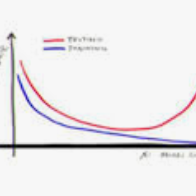Randomized experiments are an excellent tool for estimating internally valid causal effects with the sample at hand, but their external validity is frequently debated. While classical results on the estimation of Population Average Treatment Effects (PATE) implicitly assume random selection into experiments, this is typically far from true in many medical, social-scientific, and industry experiments. When the experimental sample is different from the target sample along observable or unobservable dimensions, experimental estimates may be of limited use for policy decisions. We begin by decomposing the extrapolation bias from estimating the Target Average Treatment Effect (TATE) using the Sample Average Treatment Effect (SATE) into covariate shift, overlap, and effect modification components, which researchers can reason about in order to diagnose the severity of extrapolation bias. Next, We cast covariate shift as a sample selection problem and propose estimators that re-weight the doubly-robust scores from experimental subjects to estimate treatment effects in the overall sample (=: generalization) or in an alternate target sample (=: transportation). We implement these estimators in the open-source R package causalTransportR and illustrate its performance in a simulation study and discuss diagnostics to evaluate its performance.
翻译:随机实验是用手头样本来估计内在有效的因果关系的极好工具,但其外部有效性经常受到辩论。虽然关于估计人口平均治疗效果(PATE)的典型结果隐含地假定随机选择进入实验,但在许多医学、社会科学和工业实验中,这种情况通常远非如此。当实验样品在可观察或不可观察的层面与目标样品不同时,实验估计可能用于政策决策的用途有限。我们首先将利用抽样平均治疗效果(SATE)估计目标平均治疗效果(TATE)的外推偏差分解成变量变化、重叠和效果改变组成部分,研究人员可以据此解释这些要素,以便判断外推偏差的严重性。接下来,我们将抽样选择作为抽样选择问题,提出从实验科目中重新加权双倍的体暴率分数的估数,以估计总体抽样(=:一般化)或替代目标抽样(=:运输)的治疗效果。我们在开放源的R因果质变数包中执行这些估测算器,并在模拟研究中说明其业绩。



